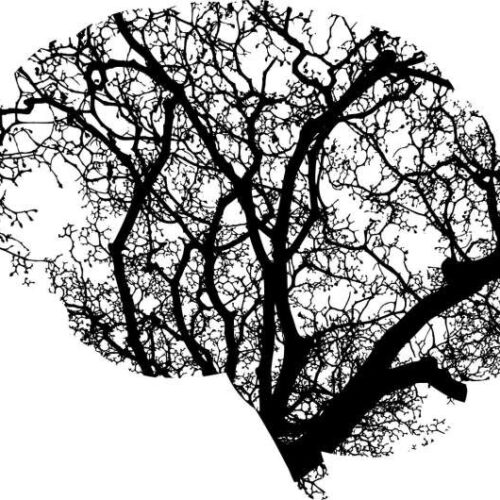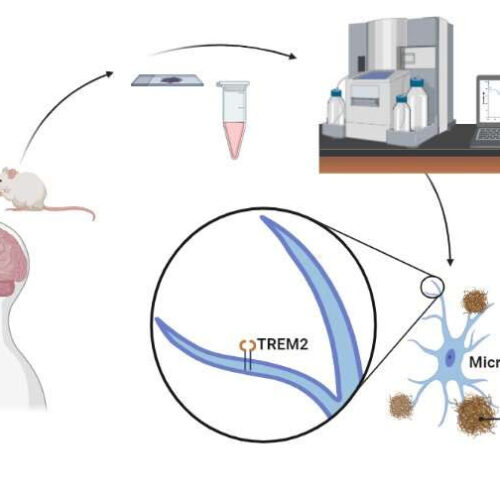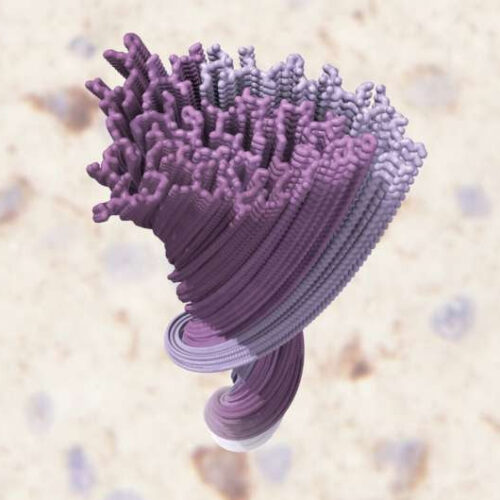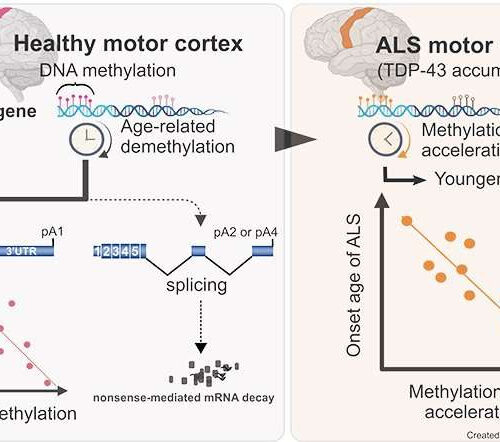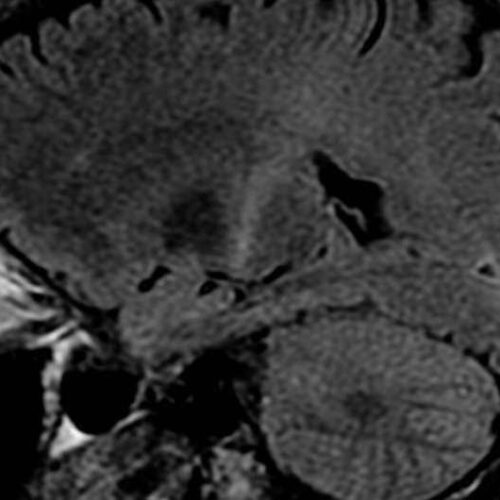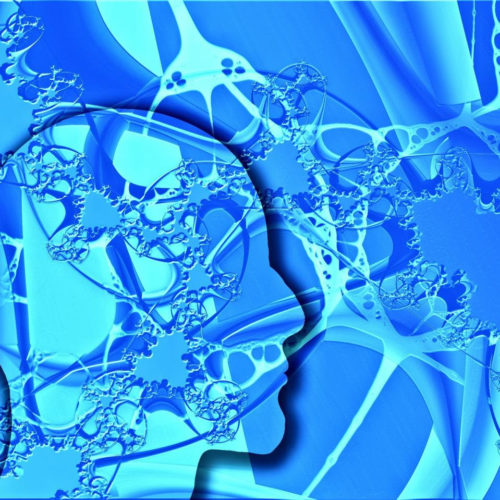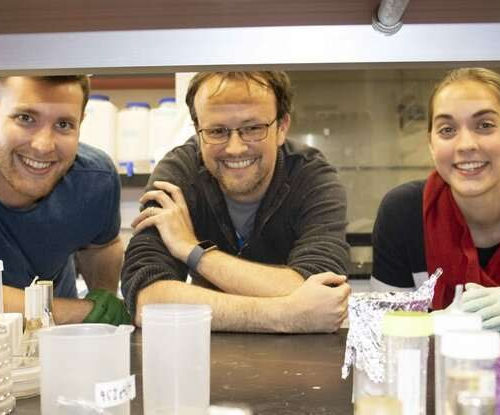JANUARY 24, 2022 by National Institutes of Health Credit: Pixabay/CC0 Public Domain Using an experimental drug, researchers have been able to suppress a mutated amyotrophic lateral sclerosis (ALS) gene. Studies in mice demonstrate that the therapy could show promise in treating rare, aggressive forms of ALS caused by mutations in the fused in sarcoma (FUS) gene....
Tag: <span>ALS</span>
Research clears up how brain ‘cleaners’ fail in ALS
by Mayo Clinic Using samples donated to Mayo Clinic’s Brain Bank for Neurodegenerative Disorders, as well as mouse models, biochemistry, confocal microscopy, and computational simulations, researchers showed that a receptor on microglial cells, called TREM2, can clear a protein that builds up in the brains of patients with ALS. Image created with BioRender. Credit: Mayo...
First detailed images of molecule associated with ALS could open door to therapies
by UK Research and Innovation The newly discovered structure of clumped TDP-43, from the brains of people with ALS. Credit: B. Ryskeldi-Falcon/MRC Laboratory of Molecular Biology Scientists have determined for the first time the structure of the molecule associated with amyotrophic lateral sclerosis (ALS) and multiple other neurodegenerative diseases. The scientists at the Medical Research...
Alterations caused by ALS detected in the retina
UNIVERSIDAD COMPLUTENSE DE MADRID UCC-UCM, 8 November 2021. Amyotrophic lateral sclerosis (ALS), characterised by harm to brain neurons and to the spinal cord, also affects the tissue of the retina, according to a study headed up by Universidad Complutense de Madrid (UCM). The research, published in Neural Regeneration Research, indicates that patients with ALS may suffer changes in...
TDP-43 DNA methylation may contribute to the mystery of age-dependent motor cortex involvement in ALS
by Niigata University Demethylation of DNA in the TDP-43 autoregulatory region using dCas9-TET1 fusion system attenuates alternative splicing involved in autoregulation and increases TDP-43 gene expression. Credit: Niigata University Amyotrophic lateral sclerosis (ALS) is an intractable neurological disease. Aging is a risk factor for the accumulation of TDP-43 (transduction responsive region DNA-binding protein of 43kDa)...
New type of cell contributes to increased understanding of ALS
by Karolinska Institutet An MRI with increased signal in the posterior part of the internal capsule which can be tracked to the motor cortex consistent with the diagnosis of ALS. Credit: Frank Gaillard/Wikipedia The causes of the serious muscle disease ALS still remain unknown. Now, researchers at Karolinska Institutet and KTH Royal Institute of Technology, among others, have...
ALS and frontotemporal dementia: early diagnosis thanks to an experimental test
SCUOLA INTERNAZIONALE SUPERIORE DI STUDI AVANZATI IMAGE: THE SCIENTISTS DEVELOPED AN EXPERIMENTAL TECHNIQUE ABLE TO DETECT THE PROTEIN TDP-43 EVEN WHEN IT IS PRESENT IN THE BODY IN MINUTE QUANTITIES AND IN THE EARLIER STAGES OF DISEASE. A test to diagnose two very serious diseases such as ALS and FTD when the pathologies have not...
Overlooked caregivers? Children, teens help care for parents with ALS
by American Academy of Neurology Children and teens with family members with amyotrophic lateral sclerosis, or ALS, help with bathing, dressing, eating and all types of caregiving activities, yet they may not have training or enough information about the disease, according to a study published in the March 18, 2020, online issue of Neurology, the...
Gene therapy can protect against ALS and SMA-related cell death
Researchers at Karolinska Institutet in Sweden and the University of Milan in Italy have identified a gene in human neurons that protects against the degeneration of motor neurons in the deadly diseases ALS and SMA. Gene therapy in animal models of these diseases was shown to protect against cell death and increase life expectancy. The...
Pedal to the metal: Speeding up treatments for ALS
by Mikayla MacE, University of Arizona A therapeutic intervention for amyotrophic lateral sclerosis, better known as ALS or Lou Gehrig’s disease, could be on the horizon thanks to unexpected findings by University of Arizona researchers. ALS is the progressive degeneration of motor neurons that causes people to lose the ability to move and eventually speak,...

